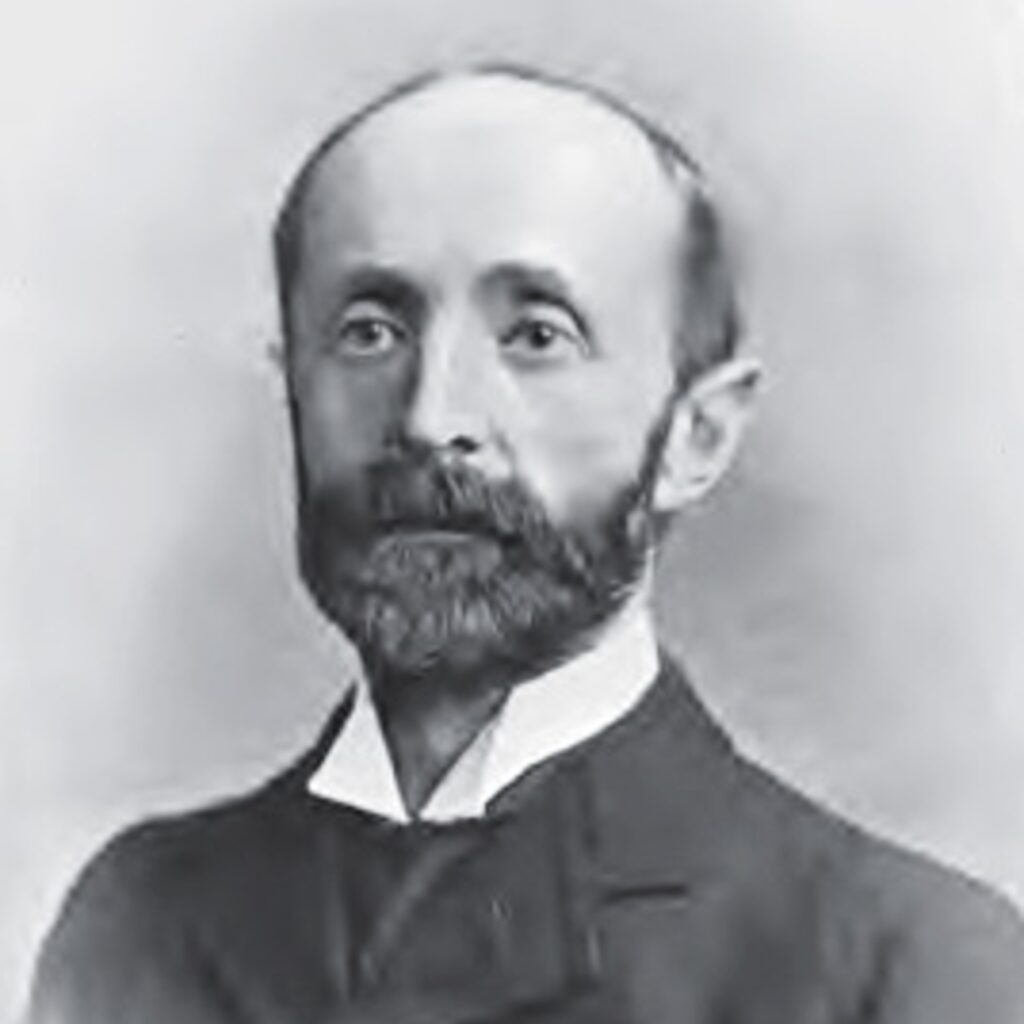D. E. Hoste (Dixon Edward Hoste, 1861-1946) was the odd man out amongst the Cambridge Seven. He was included in the group although he never studied at Cambridge, rather studying at the Royal Military Academy. Hoste later took over the leadership of the China Inland Mission (CIM) in 1902 when Hudson Taylor stepped down and he remained in that role until 1935.
Hoste faced two very early battles in his leadership. Firstly, the storm of the Boxer Rebellion broke out in the summer of 1900 when Hudson Taylor was overseas. In the light of the crisis Taylor appointed Hoste as the new leader of the CIM. The following two years of the rebellion resulted in 58 CIM missionaries and 21 of their children being killed. It was a devastating start to his leadership.
Secondly, Hudson Taylor died in 1905 with the result that many thought that the CIM would collapse. It had been centred on Taylor as the founder and leader. But the Lord enabled Hoste to lead the CIM in such a way that it flourishes to this day.
What then were the qualities that enabled him to weather these storms?
1. Above all, he treasured the presence of the Lord; that presence must not be lost. Facing an unfair demand to submit to a friend who had assumed leadership, he humbled himself after first being angry, saying that “it was impressed upon me that if I persisted in unwillingness it would mean my having to part company with the Lord Jesus Christ, for He dwells with the humble ones, with those who willingly go down.” The result of that humbling of himself? “Therefore we worked happily together.”
2. His faith in Jesus was real and personal. His parents were both God-fearing Christians, but as a young man he was not. His own crisis came when he went to an evangelistic meeting held by Dwight L. Moody in Brighton. He battled with the challenge to surrender to the Lord Jesus, but on the last day of the meetings he knelt in submission to Jesus as Lord and “immediately, a powerful sense of God’s forgiveness and love overwhelmed him, and he was filled with profound joy.”
3. He knew that Jesus was to be shared at home and abroad. “He always carried a burden for perishing souls in his heart. Evangelism was everything to him.” “If this Gospel is true, and I know it is, as it has changed my life, I want to make it known where Christ is not known. There are many people in other lands who have never heard it, and the Lord wants them to hear it, for He says so. I want to give my life to this.”
4. He was specifically called to China. When introduced to the China Inland Mission (CIM), he embraced their total dedication to the cause of bringing the gospel to the Chinese. He applied to the CIM in February, 1884 and in 1885 sailed for China.
5. Once there, he identified with the Chinese. “In every way possible he dwelt among them as one of them, taking his meals at a local food shop and eating with the Chinese evangelist. He worked hard at acquiring the language, but he did not neglect prayer or the public preaching of the gospel, which he felt compelled to share with the Chinese.”
6. He believed that the Chinese church should be Chinese-led. “Constantly, he reminded the missionaries that they were to serve the Chinese, not rule over them. Churches must be led by the Chinese Christians themselves, with missionaries serving as advisers, coaches, teachers, and evangelists to the outlying regions.” “D. E. Hoste was about two generations ahead of other missionaries in the matter of placing responsibility for church leadership upon wise and devoted Chinese Christians where the proper qualities of leadership were apparent.”
7. He was a man of prayer. “He began each day with several hours of prayer, preceded by worship. Usually, someone was asked to join him, to help keep his mind from wandering. Those who joined him reported that he wrestled with God and against the powers of darkness relentlessly, until he sensed that he had been heard. The CIM at that time had more than 1,200 members. He knew them all by name and prayed for them individually. He made no decisions without waiting at length upon God for guidance and listening carefully to the opinions of all who had any knowledge of the matter.”
8. His understanding of grace. In the face of significant offers “he decided that the CIM would accept no payment from the Chinese government for loss of life or property during the Boxer Rebellion, considering it far better to imitate the meekness of Christ.”
His last words sum up this missionary hero: “I could weep when I think of Jesus. To see Jesus – that is the beatific vision.”



